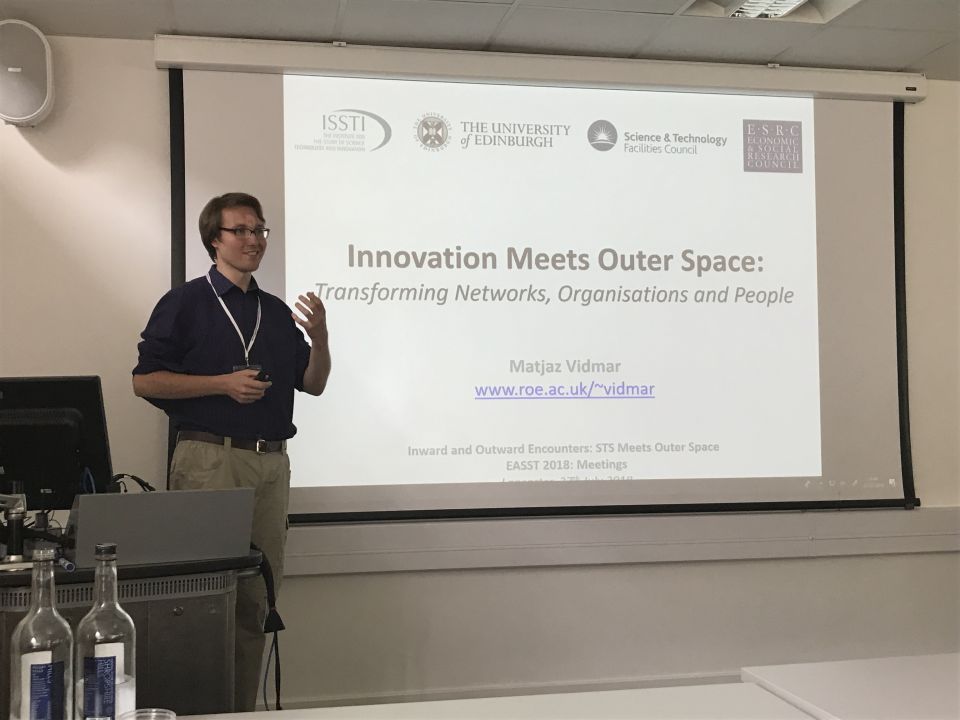
Cite as:
Vidmar, Matjaz. 2019. "This is not a Discipline!" In "Social Studies of Outer Space." In Innovating STS Digital Exhibit, curated by Aalok Khandekar and Kim Fortun. Society for Social Studies of Science. August.
This essay is part of the meta essay on the Social Studies of Outer Space group. It answers to the shared question of "what frameworks have been mobilized to articulate this STS innovation?"
TBD
Furthering its theme, Innovations, Interruptions, Regenerations , the 2019 annual 4S meeting in New Orleans will include a special exhibit, Innovating STS , that showcases innovations ...Read more
All Innovating STS exhibits are oriented by nine shared questions in order to generate comparative insight. These are:
ARTICULATION: What STS innovations (of theory, methodology, pedagogy...Read more
Science and Technology Studies (STS) have traditionally thrived in an interdisciplinary intellectual space. More than that, many would argue that it is perhaps exactly STS’ circumspection of a more structured disciplinary form that makes it possible at all. Though the ensuing plurality of theoretical and methodological approaches sometimes causes consternation with organisational diversity and lack of defined professional trajectories, it is enabling a far greater degree of inclusivity. In particular, with our intellectual subject-interest often revolving around other (natural) scientists it is our ability to tailor and modify our interaction to suit the context of the fieldwork that facilitates our access and relevance to studied localities and collectivities.
As we began to engage with STS’ take on the social aspects of scientific and technological interests and challenges in Outer Space, we started considering what does this plurality mean for us and is it a helpful tool or an annoying hindrance when applied to this new evolving context? For one, due to the interdisciplinary structure of the activities in Outer Space exploration and industry, the traditional STS tactics seem like a good fit. Noticing the variety of epistemic cultures and the “final frontier” being a fertile ground for controversies, STS’ opportunistic flexibility allowed for a plethora of varied yet impactful insights (as seen in the abstracts/photos of our contributions to EASST 2018 conference). In addition, our very different intellectual backgrounds demonstrate the value of inclusivity in bringing such a variety of expertise together.
This is specifically reflected in the name we adopted as we started to build the network and other organisational infrastructure. “Social Studies of Outer Space”, borrowed form Messeri (2016) mark a broader framework than most other options we could consider and in our discussions we singled out inclusivity as the core aspect of our endeavour – stretching our membership across all social (and natural) sciences. For such openness to work in practice, additional features of both our approach as well as the discussed name/label were mentioned, such as balancing flexibility whilst retaining recognition. Whilst such a strategy might be in part true for most emerging organisation looking to attract new members, it is perhaps this well-articulated and fierce desire for inclusivity which defines our “disciplinary” ethos far better than any ontological or epistemological commitments.